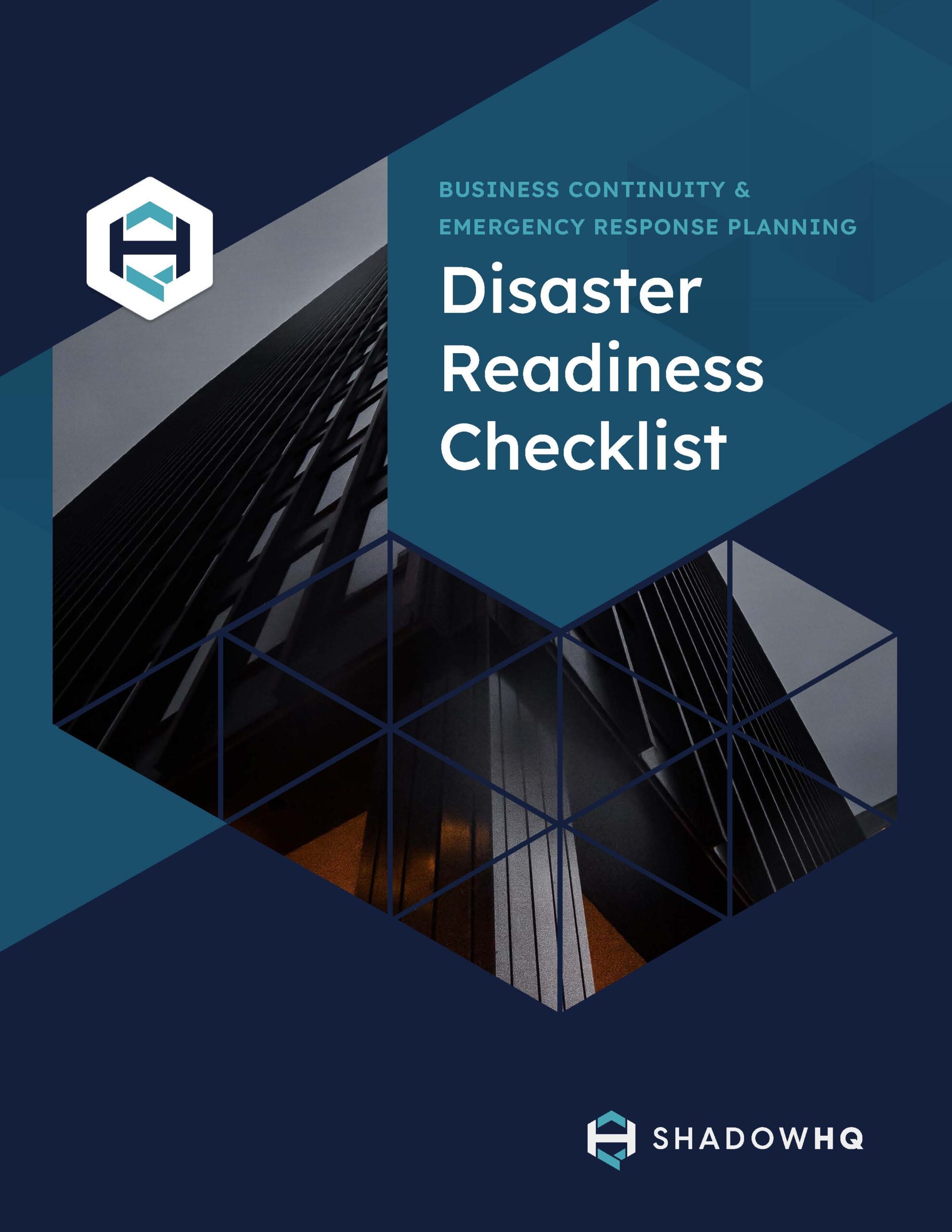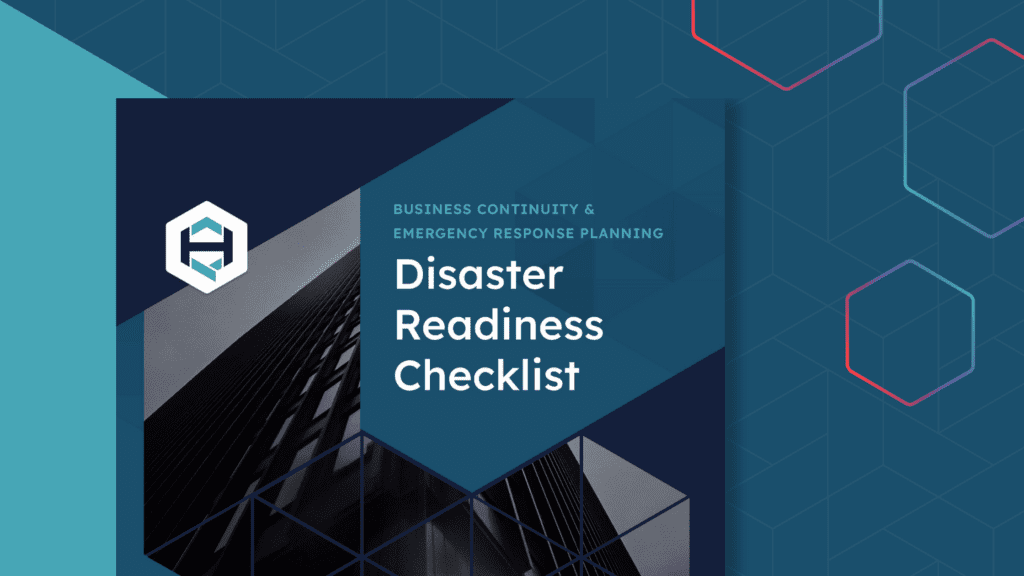Crisis Management and Incident Response vs Cyber Crisis Management: What’s the Difference?
Crisis management is an overarching field focusing on preventing and responding to a wide range of crises. However, cyber crisis management is often a major focus when it comes to crisis management — which is often detrimental to organizations’ preparedness and response.
A recent study found that crisis-level cyberattacks account for only 28% of crises, while natural disasters, PR crises, or non-cyber IT failures are each significant crisis categories. The same study also discovered that only 49% of businesses indicate they have a formal, documented crisis communication plan.
Being aware of the difference between crisis management and cyber crisis management is critical for organizations to effectively ensure business continuity and plan for a wider range of possible disasters.
Failing to manage the full range of crises results in incomplete preparedness and training to respond to incidents that may jeopardize business continuity. So, let’s explore the different types of crises, why crisis management and incident response matter, and the overarching goals of crisis management.
The Many Forms of Crises
Any incident that poses any threat to an organization can be considered a crisis. A crisis occurs when specific incidents significantly threaten an enterprise’s functionality or financial stability. These threats might jeopardize the company’s financial health, operational ability, or the health and safety of employees. The main categories of crises are:
-
Natural disasters: Sometimes, you’ll have advanced warning of a possible natural disaster, but other times, it can occur suddenly and catch your company by surprise.
-
Cybersecurity breaches: A cybersecurity breach involves a range of specific scenarios in which a malicious actor has gained access to internal systems and resources.
-
Public health crisis: Any type of public health scenario that may affect the organization is a type of crisis, which is why many businesses now have pandemic incident response plans.
-
Reputation crisis: A wide range of crises can also harm your reputation, but a reputation crisis can exist on its own, such as making headlines for internal misconduct.
-
Financial crisis: This crisis category encompasses events that affect cash flow, operating expenses, or overall ability to operate.
Understanding Crisis Management
Crisis management is a critical component of an organization’s overall risk management strategy. It involves anticipating, preparing for, and responding to potential crises that can impact a company’s reputation, finances, and operations. Effective crisis management requires a deep understanding of the organization’s risk landscape, as well as the ability to respond quickly and effectively to emerging crises.
A crisis can be defined as a critical situation that can impact a business’s reputation and stability. Crises can arise from various factors, such as cyber attacks, data breaches, natural disasters, or major accidents. The key to successful crisis management is to have a well-planned and well-executed crisis management plan in place.
A comprehensive crisis management plan should include the following elements:
-
Identification of potential crisis scenarios: Recognize and document various crisis scenarios that could affect the organization.
-
Development of a crisis management team: Assemble a dedicated team responsible for managing crises, including representatives from key departments.
-
Establishment of a crisis communication plan: Create a plan for communicating with stakeholders, media, and regulators during a crisis.
-
Development of a crisis response strategy: Outline specific actions to take in response to different types of crises.
-
Training and exercises to ensure preparedness: Regularly train the crisis management team and conduct drills to ensure readiness.
By having a comprehensive crisis management plan in place, organizations can minimize the impact of a crisis on their reputation, finances, and operations.
How Crisis Management and Incident Response Vary
Using the terms “crisis management” and “cyber crisis management” interchangeably can often result in ignoring non-cyber crises, which can be highly detrimental to your business, compliance, and ability to operate. So, what exactly is the difference?
Crisis Management
Crisis management indicates the overarching field of managing the different crises we explored above. There are similarities and differences in how each type of crisis is managed, making it necessary to create overarching practices and crisis management plans.

Crisis management will generally involve the following elements:
- Developing plans and conducting drills to prepare for specific crises or overall practices, such as switching to crisis communication platforms.
-
Taking immediate action to respond to the crisis as it unfolds with a focus on stopping the cause and mitigating its impact.
-
Once resolved, steps will be implemented to recover from the crisis and return to normal operations.
-
Post-incident, review to learn what worked and could’ve been better, and implement changes when necessary.
-
Emphasizing the importance of incident management plans in addressing disruptions to business operations. These plans help organizations prepare for and respond to various incidents, ensuring a structured approach to recovery and resource allocation.
Cyber Crisis Management
Cyber crisis management is a specific category of crisis management that focuses on cyber attacks, including ransomware attacks, data breaches, or system outages caused by malicious actors.
Managing these crises involves the right software and experts ready to mitigate and recover from advanced threats. The overall stages and goals of a cyber crisis management plan are similar to what we explored above but with a more specific focus, such as:
-
Identifying the cyber incident and assessing its impact.
-
Containment and eradication to stop the spread of the attack.
-
Restoring affected systems to operational status.
-
Post-incident analysis to understand how the attack was successful and implement corrective actions.
So what is the difference? Cyber crisis management is a more narrow, technical focus on digital threats, while overall crisis management is a broader approach to possible crises.
Incident Response and Management
Incident response and management are critical components of an organization’s overall cybersecurity strategy. Incident response involves addressing cybersecurity events primarily impacting data, while incident management encompasses the broader process of handling the incident from start to finish.
An effective incident response plan should include the following elements:
-
Identification of potential incident scenarios: Identify and document various cybersecurity incidents that could impact the organization.
-
Development of an incident response team: Form a team of experts responsible for responding to cybersecurity incidents.
-
Establishment of an incident response plan: Create a detailed plan outlining the steps to take when a cybersecurity incident occurs.
-
Development of an incident communication plan: Plan for communicating with internal and external stakeholders during an incident.
-
Training and exercises to ensure preparedness: Regularly train the incident response team and conduct exercises to ensure they are prepared to handle incidents.
Similarly, an incident management plan should include:
-
Identification of potential incident scenarios: Recognize and document various incidents that could affect the organization.
-
Development of an incident management team: Assemble a team responsible for managing incidents, including representatives from key departments.
-
Establishment of an incident management plan: Create a comprehensive plan for managing incidents from detection to resolution.
-
Development of an incident communication plan: Plan for communicating with stakeholders during an incident.
-
Training and exercises to ensure preparedness: Regularly train the incident management team and conduct drills to ensure readiness.
By having comprehensive incident response and management plans in place, organizations can minimize the impact of a cybersecurity incident on their data and operations.
Building a Resilient Crisis Management Plan
Building a resilient crisis management plan requires a deep understanding of the organization’s risk landscape, as well as the ability to respond quickly and effectively to emerging crises. The following steps can help organizations build a resilient crisis management plan:
-
Identify potential crisis scenarios: Identify potential crisis scenarios that could impact the organization’s reputation, finances, and operations.
-
Develop a crisis management team: Develop a crisis management team that includes representatives from various departments and functions.
-
Establish a crisis communication plan: Establish a crisis communication plan that includes procedures for communicating with stakeholders, media, and regulators.
-
Develop a crisis response strategy: Develop a crisis response strategy that includes procedures for responding to emerging crises.
-
Train and exercise: Train and exercise the crisis management team to ensure preparedness and response.
By following these steps, organizations can build a resilient crisis management plan that can help minimize the impact of a crisis on their reputation, finances, and operations.
Why Overall Crisis Management is Critical
Crises come in many different forms, and being prepared for them can make all the difference in how they affect your business. So, let’s explore a few ways crisis management is business-critical.
Ensure Business Continuity
Maintaining business continuity is at the heart of crisis management. Identifying and responding to an incident rapidly focuses on keeping the organization operational. Being prepared is essential for a successful crisis response, highlighting the importance of having a well-structured crisis management plan that is continually updated and tested.
Ideally, crises will be responded to so effectively that customers, clients, or even employees won’t experience any disruptions. However, this isn’t always the case, and returning customer and employee capabilities is a primary focus of crisis management.
Business continuity depends on having documented processes in place to allow cross-department teams to communicate and collaborate to solve a range of possible crises.

Reduce or Avoid Financial Loss
Similar to business continuity, minimizing the possible financial impact of a crisis is a central goal of crisis management plans. If the business is unable to operate, the opportunity cost of lost productivity and communications can be immense.
Additionally, damage caused to company assets can quickly add up as an incident remains unresolved. Crisis management planning helps resolve potentially damaging issues before they cost even more.
Demonstrate Compliance with Insurers and Regulators
Comprehensive crisis management helps build confidence with stakeholders, regulators, and insurers. Many compliance standards require crisis management procedures, while insurers may offer better rates with a robust plan ready to go.
Both regulators and insurers understand that businesses won’t always be able to avoid crises, but being prepared and ready to respond to one effectively can lead to better rates or audit results. For example, showcasing that you have a crisis communication plan and platform creates confidence in your ability to respond and recover.
Prepare for Crisis Communication and Response with ShadowHQ
Crisis management is mission-critical for any organization, including managing cyber and other possible crises. There are several running themes throughout all crisis management:
-
Crisis communication is vital for recovery.
-
Having the right systems and people in place is necessary.
-
Planning ahead and practicing those plans will prepare for rapid recovery.
-
Properly documenting and reporting crises is often necessary for regulatory requirements.
Comprehensive services assist organizations in preparing for and responding to various crises, emphasizing the importance of a crisis management incident. These services focus on building preparedness through threat identification and effective response strategies, while also guiding decision-making processes within organizations during critical incidents.
ShadowHQ developed an out-of-band crisis communication platform to keep everyone on the same page during any crisis. Our platform gives your teams a secure area to collaborate, communicate, and find response plans to help ensure business continuity.
Ready to step up your crisis communications? Book a demo today to see how our platform can streamline mission-critical communications during any crisis.
EWEBINAR
Experience the ShadowHQ platform
Walk through a cyber breach scenario in a 15 minute demo.

GUIDE DOWNLOAD
Disaster Readiness Checklist
When an emergency happens, every minute counts.


